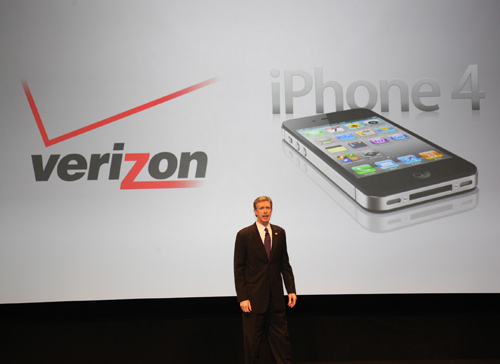Four Things To Ask Yourself Before Committing To The Verizon iPhone 4

I guess what they say is true. If you want something bad enough and wish for it with the purest of heart, it’ll come true. Three weeks ago Verizon and Apple together announced that the iPhone has found a new home.
Ever since the iPhone debuted with AT&T in the summer of 2007, multiple carriers have been vying for an opportunity to court the prom queen of all smartphones. But alas the iPhone seemed to be in a committed relationship with its first and only carrier.
But three solid years of fidelity were washed away amid growing concerns of communication issues between the two, affording Verizon the opportunity to court the queen.
Will we see a huge migration from dissatisfied AT&T customers to Verizon come launch day? More importantly should you jump on this chance?
Here are a few questions you might want to ask yourself before you commit to the long-term relationship with the Verizon iPhone:
How much will it cost me?
Chances are, you already have a cell phone. And if you’re living here in the states, you probably have a contract to go with your phone. So you have to ask yourself, “Is it worth breaking my contract and paying the early termination fee to enter into another contract?”
Jonathan Taplin, a communication professor at USC and the Director of the Annenberg Innovation Lab, believes that it’s unlikely we would see a major migration of current AT&T iPhone customers flocking to Verizon.
“It takes a lot for people to change carriers,” said Taplin, explaining that most people are content staying with their current carrier.
“On a certain level there’s just inertia. Why bother? It’s okay. I’m not that dissatisfied with AT&T so I’ll stick with it,” Taplin said.
Couple that with the actual cost of the phone ($199 for 16GB, $299 for 32GB)—not to mention the activation fee and taxes—you may find yourself spending close to a thousand dollars for that new toy of yours.
Is there a newer iPhone in the works?
The short answer: probably.
The truth is, there’s always a new phone in the works. Phone manufacturers spend an exorbitant amount of money in developing the next “it” phone.
The trick is to look at the trends—like a large drop in prices of last season’s products—and use that information to figure out when to buy the next latest and greatest.
Of course, if you’re not really into getting the newest toy on the market you don’t have to worry about buyer’s remorse.
Having said that, more likely than not, we can expect news of a new product come July during Apple’s World Wide Developer’s Conference.
What can we expect with a new iPhone?
“If Verizon can offer what’s called LTE, which is their 4th generation wireless network on the iPhone,” said Taplin, “that would be a significant competitive advantage because it’s—to my knowledge—the fastest network." A feature, according to Taplin, that’s likely going to be introduced with the next iPhone.
Can the Verizon iPhone 4 do everything that the AT&T iPhone 4 can?
Well, yes and no.
In general, yes the two iPhones have the same functions on their respective networks.
Paul Miller, writer for the popular tech blog Engadget, reports, “Outside of Verizon connectivity, the phone is basically unchanged.”
They both make/receive calls, have access to the app store, run the same iOS, and take the same pictures.
But the difference here is one of wireless technologies. The AT&T iPhone is on a Global System for Mobile Communications (GSM) network while the Verizon iPhone will be on the Code Division Multiple Access (CDMA) network. What does that all mean?
The major difference is that on the AT&T iPhone customer can make calls and surf the Internet at the same time on the GSM network. But, on the current Verizon CDMA network, customers aren’t privileged to the same luxury.
For instance, if you were using a navigation application on your Verizon iPhone and you happen to receive a call, the iPhone would have to suspend the network connection to receive the call and then go back to the application once the call is completed. No doubt a bummer for many customers but not exactly a deal breaker.
On the other hand, Verizon's iPhone can serve as a WiFi hotspot for up to five devices—much like a MiFi device from the carrier.
Can I travel abroad with the Verizon iPhone 4?
Yes, if by traveling abroad you mean to South Korea or Japan where the CDMA technology is still being used. In other parts of world, like many European nations, you’re likely to run into GSM carriers, meaning the Verizon iPhone would essentially serve as an iPod touch over yonder.
So there you have it. Fans of the iPhone in the states will have a choice to make come next Thursday: ditch last year’s prom queen and go with Verizon or stick with what they’ve learned to tolerate with AT&T. In either case, make sure to ask yourselves the four essential questions before courting your new love.
Reach reporter Jacob Chung here.



